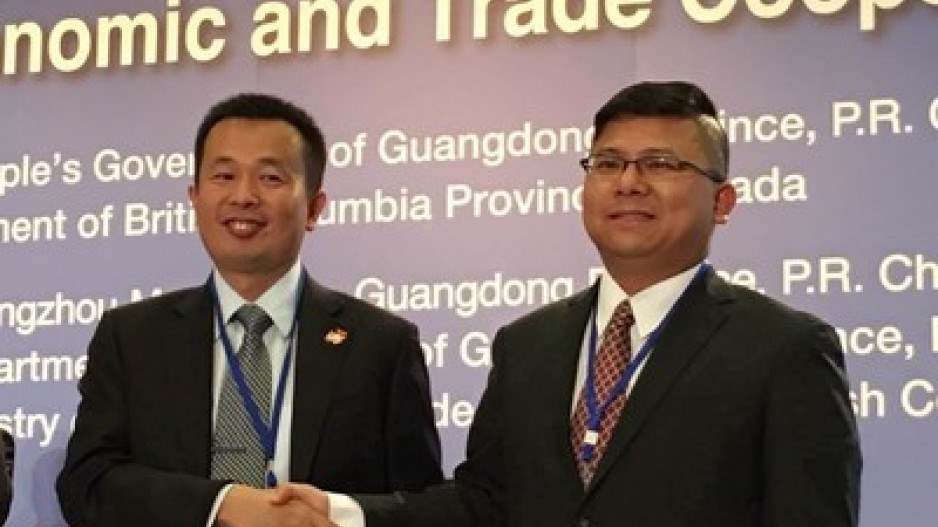A once-promising Vancouver start-up incubator with links to the Chinese market is now being investigated by B.C. authorities, after reports surfaced that the company’s 300 employees have not been paid since June.
Istuary Innovation Labs Ltd. is now also facing a number of lawsuits from investors who said the company’s owners, Yian “Ethan” Sun and Yulan “Amy” Hu, misused investments from at least four individuals.
A spokeswoman from B.C.’s Ministry of Labour confirmed Friday that Employment Standards has a file open on Istuary after being notified in late June that workers were not being paid.
“Since the file was opened, there has been 122 individual complaints received on the case, on top of the initial file,” a statement from the Labour Ministry said. “Employment Standards is currently working through the evidence and should deliver the results [of the investigation] soon.”
The company was at one time one of the higher-profile startup incubators after entering Vancouver in 2013, noting its network of 20-plus offices in North America and China. The company touted its abilities to get Vancouver entrepreneurs the funding needed to perfect research projects, then to scale-up operations and sell to high-growth markets like China.
But Istuary has been plagued by high turnover rates among its employees since opening, and media reports say separate recent lawsuits - one from investor Joe Carangi, another from a group of three other investors - alleged Sun and Hu took the investment meant for Istuary projects and used the funds on personal purchases such as real estate, as well as other debts and expenses. Reports said Carangi allegedly invested $138,000, while the other group spent a total of around $4 million.
Istuary employees Eric Hsu (a data scientist), Manivannan Gajendran (a quality-assurance official) and Elaine Li (a marketing strategist) all confirmed they have not been paid as of June 15 - and have not been able to contact anyone with company management for at least two months.
Neither Sun nor his representatives has not been able to be reached for comment. Istuary employees - such as Gajendran - have already found new jobs, although Hsu and Li said most workers technically remain on “unpaid leave,” with the last communique from management months ago that employees should pursue EI while Istuary resolves its financial issues.
“None of us officially resigned from the company because there’s no one there to take our resignations,” Gajendran said, adding he is frustrated that the authorities have not acted on the case. “This is a company that exploited its employees by not paying them for months, and the government doesn’t appear to be taking any action. When someone [like Sun] can walk free… it’s disappointing.”
Hsu added that some of Istuary’s employees are foreign citizens, in Canada on work sponsorships tied directly to the company. Therefore, these workers are essentially in limbo - unable to pursue another job and facing the potential of not knowing the status of the company, which determines whether or not they can remain in Vancouver.
He added that all he wants at this point is for him and his co-workers to be properly compensated, as well as for them to protect their reputations in the tech sector to ensure former Istuary employees can still work in the industry and earn a living after the situation is resolved. That’s why, Hsu noted, he is frustrated with representation of Istuary as a ponzi scheme in some reports, since the employees were all involved in actual research.
“Even if the company’s management and financials are a total scam, the work we did in our team was something I’m still very proud of,” Hsu said, noting the group’s work on an image-recognition program on cameras being close to market - although with Istuary technically still in existence, the status of how these projects will progress to market is also in limbo.
“We produced a real product that used cutting-edge neurotechnology… Most of my anger and frustration is just with how close we were to making a groundbreaking product and release it to market. We were so close, and now we’re just going to be known as one of these scam companies. And we had good, competent people here - just not in management.”




